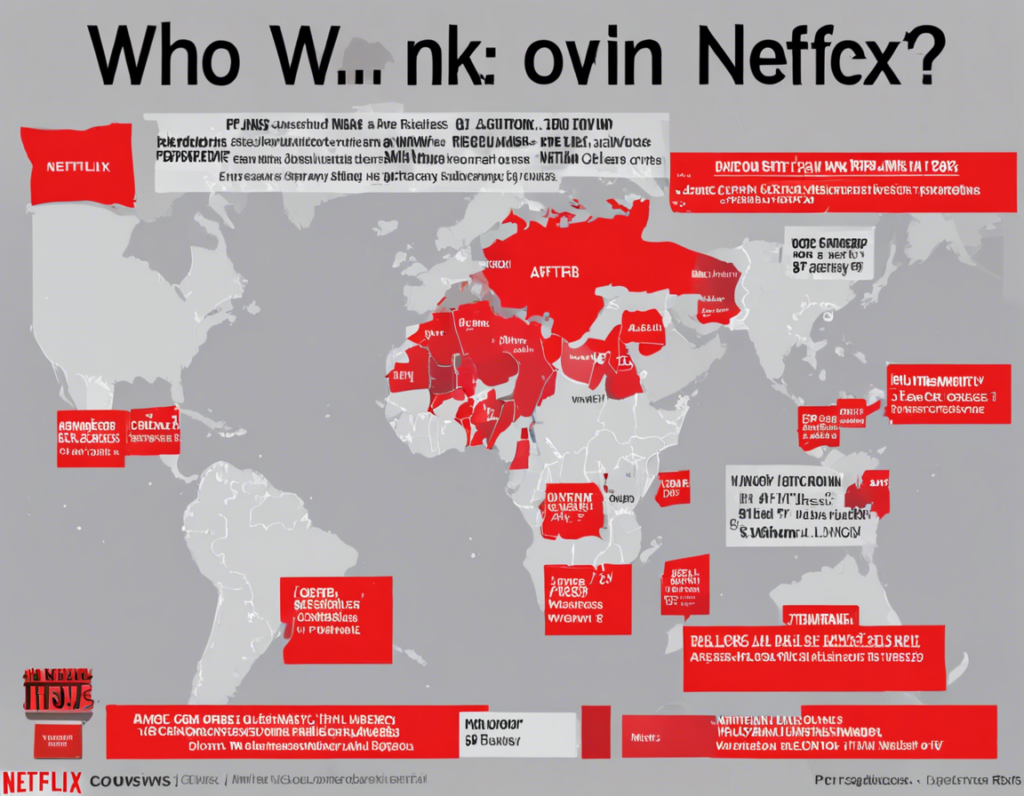In order to understand who owns Netflix, it is essential to delve into the history and structure of the entertainment giant. Established in 1997 by Reed Hastings and Marc Randolph, Netflix went from a DVD rental service to the world’s leading streaming platform, revolutionizing the way we consume entertainment. As of 2021, Netflix boasts over 200 million subscribers globally and produces a vast array of original content, including movies, TV shows, documentaries, and stand-up specials.
Corporate Structure of Netflix
Netflix operates as a publicly traded company, listed on the NASDAQ stock exchange under the ticker symbol NFLX. Its corporate headquarters are located in Los Gatos, California. Unlike traditional media companies that have multiple subsidiaries and divisions, Netflix’s structure is relatively streamlined, with its primary focus on content creation and streaming services.
Major Shareholders of Netflix
When looking at the ownership of Netflix, it is crucial to consider the major institutional investors and individual stakeholders who hold significant positions in the company. As of the latest reports, some of the major shareholders of Netflix include:
-
Vanguard Group: Vanguard is one of the largest investment management companies in the world and holds a substantial stake in Netflix.
-
BlackRock: Another prominent institutional investor, BlackRock, has a significant ownership position in Netflix.
-
Fidelity Investments: Fidelity is known for its mutual funds and investment services and is among the top shareholders of Netflix.
-
Capital Group: Capital Group Companies, a global investment management firm, also holds a noteworthy stake in Netflix.
-
Reed Hastings: As one of the co-founders of Netflix, Reed Hastings retains a significant ownership interest in the company.
Ownership and Governance
While institutional investors play a crucial role in owning Netflix shares, the company’s governance structure is overseen by its board of directors, led by Reed Hastings, who serves as the Chairman and Co-CEO. The board includes individuals with diverse backgrounds and expertise in various industries, guiding Netflix’s strategic decisions and long-term vision.
Recent Developments and Future Outlook
Netflix continues to dominate the streaming industry, facing competition from other platforms like Amazon Prime Video, Disney+, Hulu, and HBO Max. The company’s focus on original content production, global expansion, and technological innovation has been key to its success. As viewing habits evolve and the demand for online streaming grows, Netflix remains at the forefront of the digital entertainment landscape.
FAQs
-
Is Netflix publicly traded?
Yes, Netflix is a publicly traded company listed on the NASDAQ stock exchange under the ticker symbol NFLX. -
Who are the major shareholders of Netflix?
Some of the major shareholders of Netflix include institutional investors like Vanguard, BlackRock, Fidelity Investments, and Capital Group, along with co-founder Reed Hastings. -
How is Netflix’s governance structured?
Netflix’s governance is overseen by its board of directors, with Reed Hastings serving as the Chairman and Co-CEO, leading strategic decisions for the company. -
What sets Netflix apart from its competitors?
Netflix stands out for its extensive library of original content, global reach, and focus on technological innovation, making it a leader in the streaming industry. -
What is the future outlook for Netflix?
Despite increasing competition, Netflix is poised for continued growth through its content strategy, international expansion, and commitment to meeting viewer demands. -
Can individuals purchase shares of Netflix?
Yes, individual investors can buy shares of Netflix through brokerage accounts and online trading platforms. -
Does Netflix pay dividends to its shareholders?
As of now, Netflix does not pay dividends to its shareholders, as the company reinvests its profits into content production and growth initiatives. -
How does Netflix make money?
Netflix generates revenue primarily through subscription fees paid by its millions of subscribers worldwide, who gain access to the platform’s content library. -
What are some challenges facing Netflix in the future?
Challenges for Netflix include competition from other streaming services, content production costs, changing viewer preferences, and regulatory issues in different markets. -
Is Netflix available in all countries?
Netflix is available in most countries worldwide, but its content library may vary depending on licensing agreements and regional restrictions.
In conclusion, understanding the ownership structure of Netflix involves a deep dive into its major shareholders, corporate governance, and strategic direction. As the entertainment landscape continues to evolve, Netflix’s position as a global streaming leader underscores its ongoing success and influence in the industry.
